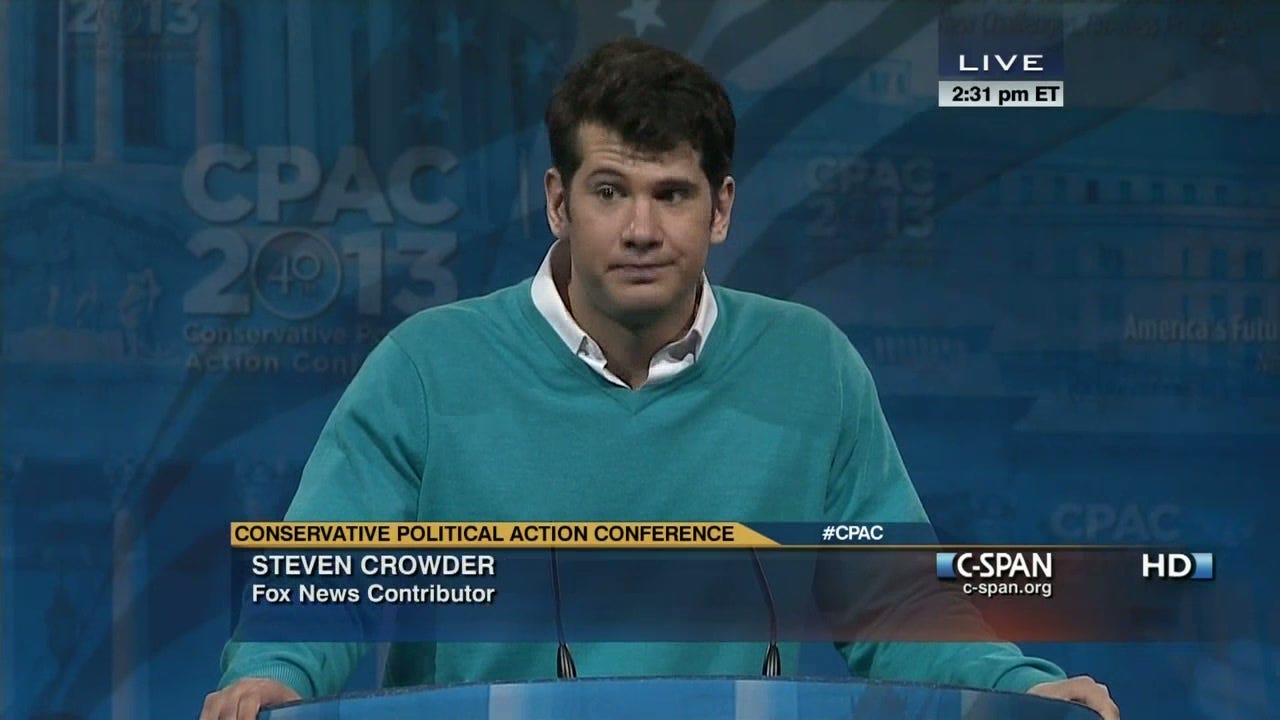Update on the Steven Crowder Legal Battle
A second illegal lawsuit.
Earlier this year, Louder with Crowder LLC (LWC) filed a lawsuit against former LWC producer Jared Mittelo aka Jared Monroe. The lawsuit alleged that Jared violated a non-disparagement clause and a confidentiality clause contained in a separation agreement.
These two contract clauses were illegal under the National Labor Relations Act (NLRA), which also made the lawsuit itself illegal under the NLRA. In response to the filing of this illegal lawsuit, I filed an unfair labor practice (ULP) charge at the National Labor Relations Board (NLRB) against LWC alleging, among other things, that LWC maintains and sought to enforce an illegal non-disparagement and confidentiality clause. If successful, that charge will result in an order requiring LWC to rescind these clauses from all of its agreements and to reimburse Jared for any legal expenses he incurred defending himself from the illegal lawsuit.
After I filed the ULP charges, LWC stopped pursuing its breach-of-contract lawsuit and then withdrew the lawsuit altogether. This is presumably because LWC decided that the lawsuit was futile and would result in LWC having to pay potentially hundreds of thousands of dollars of damages to Jared.
New Defamation Lawsuit
After withdrawing its breach-of-contract lawsuit, LWC filed a new lawsuit alleging that Jared defamed Steven Crowder.
The statements alleged to be defamatory are these two text messages sent from Jared to Crowder’s ex-wife, Hillary.
Presumably the idea behind this new lawsuit is that, because it is a common-law claim for defamation, it does not run into the same problems that the first lawsuit did, i.e. it is not a lawsuit that seeks the illegal objective of enforcing contract clauses that violate the NLRA.
But this is mistaken.
There are three kinds of lawsuits that violate the NLRA:
Lawsuits that seek an illegal objective.
Lawsuits that are preempted.
Lawsuits that are baseless and retaliatory.
The breach-of-contract lawsuit was a lawsuit that sought an illegal objective. This defamation lawsuit is a lawsuit that is baseless and retaliatory.
A lawsuit is considered baseless when “no reasonable litigant could realistically expect success on the merits.” A lawsuit is considered retaliatory when it is brought “with the intent of retaliating against an employee for the exercise of rights protected by Section 7 of the NLRA.”
There are at least three reasons that no reasonable litigant could expect to succeed on this defamation claim:
It clearly runs afoul of the Texas anti-SLAPP statute, the Texas Citizens Participation Act.
The two statements alleged as defamatory are opinions, not fact claims.
Proving defamation against a public figure requires a showing of actual malice, i.e. that Jared knew these statements were false or had reckless disregard as to their falsity.
The lawsuit was also brought with the intent of retaliating against Jared for the exercise of his Section 7 rights. This defamation claim is clearly just a continuation of the prior legal actions brought by LWC, which explicitly state that LWC is bringing the actions in response to Jared’s alleged communication with coworkers about workplace conditions. The defamation lawsuit is also clearly being filed in response to Jared’s filing of ULP charges against LWC for its prior, illegal lawsuit.
So, although the new lawsuit is not an illegal-objective lawsuit, it is a baseless-and-retaliatory lawsuit, which also violates the NLRA and carries with it the same penalties, including the payment by LWC of Jared’s legal expenses.
In response to this new action by Crowder, I have amended the ULP charges to allege that LWC’s defamation lawsuit also violates the NLRA. The NLRB decided a similar case in 2018 — one where an employer brought a baseless-and-retaliatory defamation lawsuit against a union — that reached this exact conclusion.


